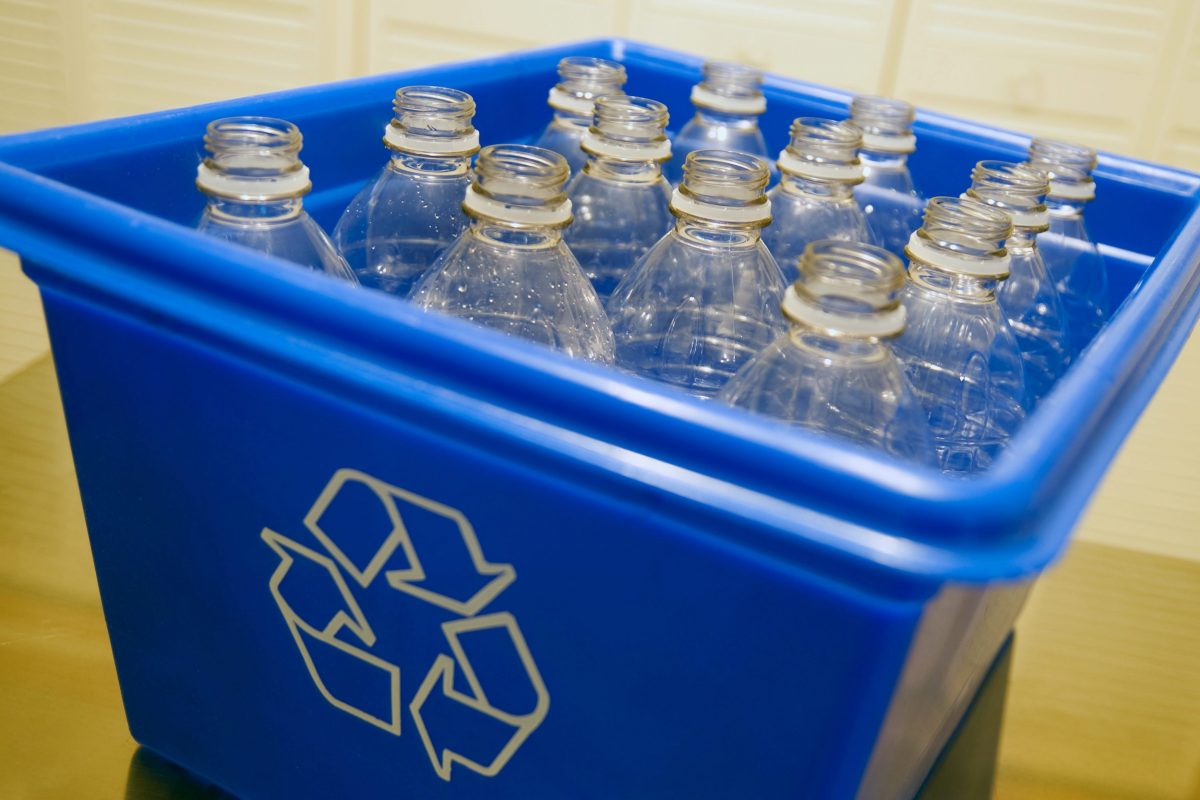Plastic items are commonplace in our day-to-day lives. From plastic shopping bags to plastic to-go cups, it doesn’t take long to find people using plastic. But much of that plastic ends up as litter.

According to the great Canadian Shoreline Clean Up, of the 12 most commonly found litter items in the country last year, 10 of them contained plastic; cigarette butts, tiny plastic or foam, food wrappers, bottle caps, plastic bags, plastic bottles, straws, other packing, foam and coffee cups.
The federal government announced Monday their intention to ban single use plastics by 2021.
READ MORE: Trudeau eyeing a Canadian ban on single-use plastics by 2021
It’s welcome news to Kate Riordon, who says she does her best to reduce her own plastic consumption.
“I don’t use plastic bags anymore, straws, plastic cutlery, all gone,” she said. “I use reusable bags and bamboo products.”
Riordon supports a federal ban because currently avoiding plastic isn’t always easier.
“It’d be easier if (products] were more readily available in you know, Lawtons, or Shoppers or Grocery stores,” she said.
“I’m really upset that cucumbers come individually packaged.”
But there are some stores that have gone plastic free. Kate Pepler opened The Tare Shop in 2018. It offers products in bulk, and doubles as a cafe – but there’s no plastic.
“We don’t have any disposable coffee cups, or treat bags. We do have mufs if you stay in store, and we do offer free mugs for people to take to go” said Pepler.

Get daily National news
As for the bulk food portion of the store, there are no plastic bags. Customers can bring in their own containers, or use a container that has been donated to the store.
“When I started transitioning to zero life waste style what I was really frustrated with was the liquids,” she said.
“So not being able to buy laundry detergent, dish soap, balsamic vinegar package free, so that’s things that we carry.”
WATCH: Zero-waste advocate shows it takes very little to make big difference

While Pepler said her store was opened to address a need, she realizes that going plastic free can be difficult, especially for those in rural areas, which is why she’d like to see more retailers make an effort to reduce plastic.
“Big stores actually have an insane amount of power to make a difference,” said Pepler, referring to a grocery chain in Europe that decided to eliminate plastic.
“They went to all of their suppliers and said if you can’t get us your product plastic free by a cut off date, then we will find it somewhere else, and alot of those were able to make accommodations and switch up how they package or distribute their food.”
The Retail Council of Canada acknowledged the power larger chains can have and said that the federal plastic can will help make it easier for stores to make such changes.
“Competition always makes it difficult for retailers to take this type of action completely on their own, if they’re doing something and yet their competitors are not it can be used against them,” said Jim Cormier, Atlantic sirector for the Retail Council.
“We always talk about harmonization, so what better way to harmonize than to have everyone on the same level playing field from coast to coast to coast.”
Plastic ban ‘not enough’
Details of the federal plastic ban have not been determined, but one local restaurant owner says a single-use plastic ban alone is not enough.
Lil MacPherson, co-owner of Wooden Monkey, says their restaurant has been plastic free for over a decade. Instead of sending customers home with leftovers in styrofoam containers they use biodegradable containers, but while they’re better for the environment, they’re still not a perfect solution.
“Then you have to look into does your city do compostable cups,” she said. “It’s really tough.”
The restaurant used to also do compostable straws, but have since transition to paper straws.
MacPherson says to truly tackle the issue, everyone needs to work together towards viable solutions.
“It’s the government’s responsibility, it’s the municipalities responsibility, I think it’s the manufacturing responsibility to make sure what we put out into the environment can be either broken down easily, it won’t poison anybody, it’s not going to harm any environment or sea life,” she said.
“I really think we should put more incentives on people being green. It should be easier to be green and harder to pollute.”




Comments